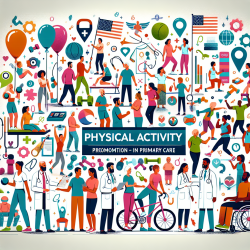Introduction
In the ever-evolving landscape of healthcare, practitioners are constantly seeking ways to enhance their skills and improve patient outcomes. A recent study titled "The effect of medical innovation on the cost-effectiveness of Covid 19-related policies in the United States using a SIR model" provides valuable insights into how medical innovation can be leveraged to implement cost-effective Covid-19 policies. This blog aims to empower practitioners by exploring the outcomes of this research and encouraging further investigation into its findings.
Understanding the Research
The study utilizes a Susceptible-Infected-Recovered (SIR) model to evaluate the cost-effectiveness of three major Covid-19 policies: Non-Medical Interventions (NMIs), vaccine development and deployment, and therapeutics and care improvements within the hospital setting (HTCI). The Incremental Cost Effectiveness Ratio (ICER) was calculated for each policy to assess their impact on Quality-Adjusted Life Years (QALYs) and economic costs.
Key Findings
- Hospital Therapeutics and Care Improvements (HTCI): The study found that HTCI was the most cost-effective policy, with a cost of $2,089 per QALY gained. This approach was justified under any standard cost-effectiveness threshold.
- Vaccines: Vaccine development and deployment were also cost-effective, with a cost of $34,777 per QALY gained. When combined with HTCI, the cost was $58,528 per QALY gained.
- Non-Medical Interventions (NMIs): While NMIs reduced deaths and saved QALYs, their cost per QALY gained was well outside the usual accepted limits, making them less favorable compared to other options.
Implementing Research Outcomes
Practitioners can harness the insights from this study to improve their approach to Covid-19 management. Here are some actionable steps:
- Focus on Cost-Effective Interventions: Prioritize HTCI and vaccine deployment, as these have been shown to provide the most value for the resources invested.
- Advocate for Medical Innovation: Encourage continued research and development of new therapeutics and care improvements to enhance patient outcomes and reduce costs.
- Collaborate with Policymakers: Work with local and national authorities to implement policies that align with the most cost-effective strategies identified in the study.
Encouraging Further Research
The findings of this study highlight the importance of ongoing research and innovation in healthcare. Practitioners are encouraged to delve deeper into the study and explore additional areas of research that could further enhance the cost-effectiveness of Covid-19 policies.
Conclusion
By understanding and implementing the outcomes of this research, practitioners can play a pivotal role in shaping cost-effective Covid-19 policies that maximize patient benefits while minimizing economic costs. Embracing medical innovation and collaboration with policymakers will be key to achieving these goals.
To read the original research paper, please follow this link: The effect of medical innovation on the cost-effectiveness of Covid 19-related policies in the United States using a SIR model.










